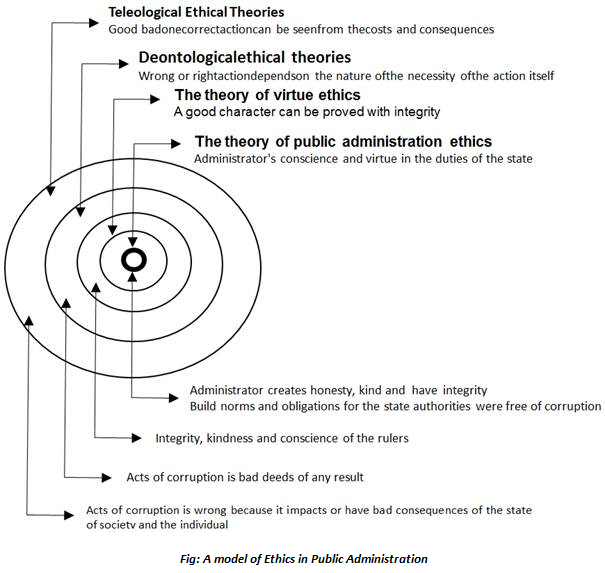Normative Ethical Theories (Part-II)
- 21 Sep 2020
- 10 min read
Virtue Ethics
- Virtue ethics shifts the analytical emphasis away from rule-based decision-making (of deontological ethics) or of the consequences of an action (eg in utilitarianism) towards the ethics of individuals and the ethics of human character.
- For example: A teleologist would argue that giving to a charity maximises well-being in society, and a deontologist would argue that we have a duty to help others, a virtue ethicist would point to the fact that helping others displays desirable virtues such as being charitable or benevolent.
- Other desirable virtues include honesty, courage, friendship, mercy, loyalty, modesty, patience, and so on. The opposite of virtues are vices.
- Virtue ethics offers a better motive for the action one does than the duty-based ethics.
- Saving a life of someone only out of the sense of duty seems to lack a better motivation like compassion and kindness, which can be expected only from a person who has developed these virtues in him/her.
- It is also important to note that duty-based ethics somehow neglects some of the essential aspects of moral life, namely the emphasis of being a good person leading a virtuous life.
- However it is criticised for below reasons:
- It lacks moral principles and ethics without specific principles cannot guide us in deciding the moral choice of an action.
- For example: When someone steals money, what would be a morally right act in dealing with that person?
- There is a lack of moral judgment in virtue ethics. A person may be virtuous but he/she may still not be able to distinguish right action from wrong action especially if he/she is not knowledgeable in a particular field.
- There can be situations in which virtues enter into conflict with one another.
- For example: If a person comes across a dilemma situation of his/her friend brought to trial and he/she is a witness.
- If the person tells the truth, which means he/she is dishonest, his/her friend will end up in prison for a few years.
- If the person wants to save his/her friend to show loyalty to his/her friendship, he/ she will necessarily tell a lie which implies that he/she is dishonest.
- Which of these two virtues, honesty and loyalty, is to be pursued in this situation?
- It lacks moral principles and ethics without specific principles cannot guide us in deciding the moral choice of an action.
Aristotle’s Virtues
- Aristotle is one of the founders of the Virtue Ethics in Greece. He says that the human person is a rational animal. Human person has got the ability to reason out which serves as the essential characteristics and functions of the human being.
- This essential characteristic of being rational leads to achieve a particular goal or end which Aristotle calls virtue.
- Virtues are of two types. They are intellectual virtues and moral virtues.
- Intellectual virtues are that which can be taught and learnt. Prudence is one such virtue. We can easily learn from others as to how to be prudent.
- Moral virtues can be achieved by repeatedly doing an action that becomes a habit. These cultivated habits lead to achieving ultimate happiness.
- Aristotle also says that virtue is a golden mean, that which lies in the middle of the two extremes. For example, courage as a moral virtue lies between the two extremes namely cowardice and fool-hardiness.
- Four important virtues, according to Aristotle, are Wisdom, Prudence, Temperance and Fortitude (courage).
| Distinction Between the Deontological and Teleological Ethical Theories | |
|
DEONTOLOGICAL THEORIES |
TELEOLOGICAL THEORIES |
|
|
Application of Ethical Theories in the Public Administration
- Consequentialist ethical theories (teleological) explain that acts of corruption by bureaucrats are not ethical in nature.
- The emphasis should be on what is the foundation and at the same time the principle in action to determine whether an act is right or wrong and rational choice of individuals who are always consistent in determining wrongdoing and right actions.
- This principle as an individual choice of the underlying activity is to act ethically, properly and well.
- In Kantian theory, “deontology” is oriented to the moral basis in doing acts of good, moral for the authorities.
- Deontology criticizes acts of corruption. It can reduce honesty, justice, and virtue, undermining the legitimacy of a regime.
- Deontological ethical issues that can be identified are associated with honesty, justice and virtue high public officials for the application of ethical principles in public administration.
- The “virtue ethics” can be applied during administration to avoid any bad behavior in power, because virtue ethics offer several categories of underlying rejection of bad actions or behavior of officials who abuse their authority.
- Patterns of mal-governance and corruption need to be eradicated using dynamic, participatory society, social control and supervision.
- Such Corrupt practices in the public administration can be reduced if there is an official state of integrity, virtue and conscience of the government to end the bad deeds.
Read more: Normative Ethical Theories (Part-I)

